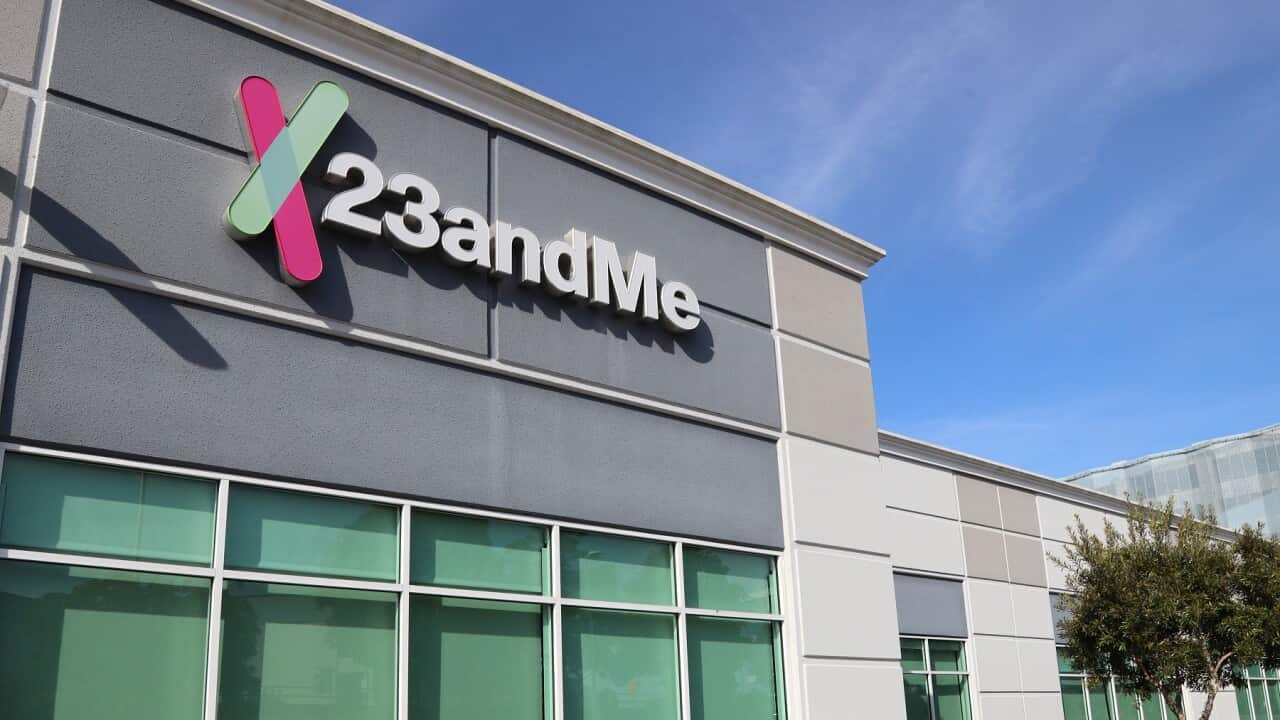TRANSCRIPT
"We picked a number one invention of the year and this year it is the retail DNA test, pioneered by a company called 23andMe. Essentially what it is, it comes in this box, you open it up, inside is a vial, you spit in the vial, you send them the spit and they will scan your genome and they will tell you what health conditions you might be at risk for. We consider this to be an absolutely revolutionary invention that will change forever the way we think about healthcare and the way we think about our personal information."
That was Time Magazine's announcement of the invention of the year in 2008.
The company 23andMe had begun two years earlier in 2006 with a simple premise.
If you could know more about your DNA, you could understand your ancestry, your risk factors for health conditions and could even ensure your medical treatment was personalised for you.
But in the almost twenty years since the arrival of 23andMe, has the genetic revolution actually happened?
"No. It turns out biology is always more complicated than what we hoped."
That was Dr Philipp Bayer, one of the researchers behind an open-source database for people who had completed a direct-to-consumer genetic testing kit to upload their results.
He says the group created OpenSNP in 2011 to open access to everyone, not just the pharmaceutical companies that could afford access to commercial data sets.
They hoped that by increasing access to genetic data, more medical discoveries could occur.
In a blog post, a fellow researcher said it would give the individual the choice to contribute rather than having researchers or companies broker the access.
But Dr Bayer says genetic research hasn't gone the way that was expected.
"And back then we didn't know how much one of these pieces of DNA can tell you about someone's disease or propensity to disease or probability to develop some other melody in your life. We just didn't know back then, and by now, 14 years later, we know that the biology is always more complicated than you assume. There's always far more factors working on figuring these outcomes, and it's just not the single data point that can help you predict what's happening."
Dr Jan Charbonneau is an adjunct researcher at the Centre for Law and Genetics at the University of Tasmania.
She says that for some customers in the US, the results of genetic data testing can actually have unexpected impacts on eligibility for health insurance.
"When you sign up for health insurance through your company, whatever, you attest that you do not know of any genetic predispositions. Well, if you've had a 23 and me test, of course that's not part of your health record. But by saying no thinking, you're keeping your genetic results out of the official records. Of course that could compromise your health insurance later."
In 2008, the US Government passed the Genetic Information Nondiscrimination Act which protects against genetic discrimination in employment, a law that was expanded to include health insurance plans a year later.
In Australia, a doctors group has been campaigning for similar legislation.
The government announced in September 2024 that it would ban genetic discrimination in life insurance - but no legislation has passed yet.
Australian Medical Association vice president, Associate Professor Julian Rait, says the future of the ban is uncertain as we head into a federal election.
"Well look, we are still confident that the government's heart is in the right place about this particular piece of legislation. Obviously it’s been deferred as a consequence of the election and we would hope that in the new term of whatever the government might follow that we would be able to advocate for that legislation being passed and obviously then promulgated so that people are better protected.”
The AMA's statement on genetic testing says genomics will rapidly transform the sector, and should be incorporated into everyday healthcare.
But Associate Professor Rait says people should consult their doctor when considering one of these tests.
"The AMA has forewarned since about 2012 of the ethical challenges of genetic testing, in particular the privacy risk and also the cybersecurity risks, because of the shared nature of the information. It's not just your own DNA in some ways, it's also shared by many family members. And so, therefore there's the potential for information to be exposed that might not be necessarily, you know, to the comfort of all the other members of the family."
The researchers behind OpenSNP have decided to delete all of their data, along with their website, at the end of April.
Dr Bayer says the decision comes from a cost benefit analysis amid the issues with 23andMe - and the growth of far right governments.
"Is this data actually helping people or will it be used to the detriment of people and to us currently looks like it'll be more used to the detriment of people. So that's triggered this decision."
Former customers of 23andMe are also asking questions about what to do with their data, now 23andMe have filed for bankruptcy.
Associate Professor Rait says there are concerns around data protection, with some customer data appearing on the dark web after 23andMe experienced a data breach in 2023.
But it's the legitimate sale of the company's assets as the bankruptcy proceeds that is also raising questions.
The company has said in a statement that the sale would not impact how customer data is managed, but the Attorney-General of California, where the company's headquarters is located, has warned customers to consider deleting their data.
"Now there are procedures in place to be able to go in and ask 23andMe to delete your data. My question has always been, first off, will they do it? They tell you they're going to do it. What kind of confirmation do we have other than you get an email from them saying, we've deleted your data. But when you shop and think where that data has gone, how could we possibly delete it from these large databases?"
Dr Charbonneau says the sale of the company will result in the sale of their information.
She says some customers might not understand yet that's what could happen - given they had to read 13 different documents to understand what they were signing up for.
"Now, even as lawyers, we have struggled with some of them and I wonder if the general public, what do they make of a jurisdiction clause? What do they make about assigning their rights in their DNA? Do they understand what these things mean in terms of their actual protections?"
Dr Charbonneau has one piece of advice for those who are still considering a direct to consumer DNA test: to consider everything.
"Think before you spit and share."













